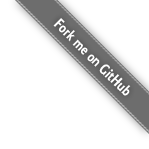@ValueRangeProvider(id = "delayRange")
public List<Integer> getDelayRange() {
List<Integer> = new ArrayList<Integer>(5000);
for (int i = 0; i < 5000; i++) {
delayRange.add(i);
}
return delayRange;
}Release Notes 6.1
We are happy to announce a 6.1 Final release of OptaPlanner. OptaPlanner is a lightweight, embeddable planning engine written in Java™ to solve AI constraint optimization problems efficiently. Use cases include Vehicle Routing, Employee Rostering, Maintenance Scheduling, Task Assignment, School Timetabling, Cloud Optimization, Conference Scheduling and many more.
- Stable: Lots of unit, integration and stress tests
- Reliable: Used across the world in production
- Scalable: To billions of constraint matches with minimal RAM and CPU time
- Documented: Read the detailed reference manual and the many examples
- Open Source: Apache License 2.0
The RHDM version differs from the OptaPlanner version:
| RHDM version | OptaPlanner version |
|---|---|
| 7.8 | 7.39 |
| 7.9 | 7.44 |
| 7.1 | 7.48 |
| 7.11 | 8.5 (and 7.52) |
| 7.12 | 8.11 (and 7.59) |
| 7.13 | 8.13 (and 7.67) |
New and noteworthy
Public API
There is now a public API:
-
Public API: All classes in the package namespace
org.optaplanner.core.apiare 100% backwards compatible in future releases. -
Impl classes: All classes in the package namespace
org.optaplanner.core.implare not backwards compatible: they might change in future releases. The recipe calledUpgradeFromPreviousVersionRecipe.txtdescribes every such change and on how to quickly deal with it when upgrading to a newer version. That recipe file is included in every release zip. -
XML configuration: The XML solver configuration is backwards compatible for all elements, except for elements that require the use of non-public API classes. The XML solver configuration is defined by the classes in the package namespace
org.optaplanner.core.config.
Performance speedups
-
EntitySelector caching speedup for large datasets: Benchmarked on MachineReassignment’s B datasets.
-
Tabu Search:
+3%on average,+4%on largest -
Late Acceptance:
+234%(x3.34) on average,+430%(x5.3) on largest
-
-
Generic cloning speedup for large datasets: Benchmarked on MachineReassignment’s B datasets.
-
Tabu Search:
+18%on average,+24%on largest -
Late Acceptance:
+23%on average,+121%(x2.21) on largest
-
Declarative value ranges
When the planning value range of a planning variable is a number (such as int, double or BigDecimal),
you can now declare the range by its bounds, instead of enumerating all values in the range.
So instead of reserving 5000 memory spaces for all the integer values:
You can now just reserve 2 memory spaces for the bounds of those integer values:
@ValueRangeProvider(id = "delayRange")
public CountableValueRange<Integer> getDelayRange() {
return ValueRangeFactory.createIntValueRange(0, 5000);
}New Construction Heuristic: Cheapest Insertion
A new Construction Heuristic that takes considerably longer than First Fit, First Fit Decreasing, but often has better results.
<constructionHeuristic>
<constructionHeuristicType>CHEAPEST_INSERTION</constructionHeuristicType>
</constructionHeuristic>New Exhaustive Search: Branch And Bound
Branch And Bound is a smart version of Brute Force. It also explores nodes in an exponential search tree, but it investigates more promising nodes first and prunes away worthless nodes. Configure it like this:
<exhaustiveSearch>
<exhaustiveSearchType>BRANCH_AND_BOUND</exhaustiveSearchType>
</exhaustiveSearch>BenchmarkAggregator
The BenchmarkAggregator in optaplanner-benchmark allows you to merge multiple benchmark reports into 1 report.
Contributed by Matej Čimbora.
Generic move improvements
-
New
PillarChangeMove: A pillar is a set of planning entities which have the same planning value(s) for their planning variable(s). The PillarChangeMove selects 1 entity pillar and changes the value of 1 variable for all entities. -
The pillar moves can now select subPillars too.
Other improvements
-
The Manners2009 example has been cleaned up and renamed to the Dinner Party example.
-
Decision Table example: the Dinner Party example now demonstrates how to use a Drools Decision Table (an XLS file) to allow users to define score rules.
-
New BestScoreFeasibleTermination: terminates when the best score is feasible. Contributed by Matej Čimbora.
-
Real-time planning improvements, such as a daemon mode.
Upgrade your code to 6.1
The best and easiest way to upgrade to this new version of OptaPlanner is by following the upgrade recipe.
New features in older releases
Read the previous release notes to learn about the new and noteworthy in previous releases.
-
Wed 6 September 2023
-
Thu 27 April 2023
Anna Dupliak
-
Mon 24 April 2023
Radovan Synek
-
Tue 21 February 2023
Lukáš Petrovický
-
Tue 15 November 2022
Geoffrey De Smet
-
Wed 9 November 2022
Radovan Synek
-
Tue 6 September 2022
Geoffrey De Smet
-
Thu 9 June 2022
Radovan Synek
-
The Vehicle Routing Problem
Fri 23 September 2022
Geoffrey De Smet
-
Introduction to OptaPlanner AI constraint solver
Thu 25 August 2022
Anna Dupliak
-
On schedule: Artificial Intelligence plans that meet expectations
Sat 23 July 2022
Geoffrey De Smet
-
Host your OptaPlanner app on OpenShift (Kubernetes)
Mon 7 February 2022
Geoffrey De Smet
-
OptaPlanner - A fast, easy-to-use, open source AI constraint solver for software developers
Mon 31 January 2022
-
Order picking planning with OptaPlanner
Fri 31 December 2021
Anna Dupliak
-
AI lesson scheduling on Quarkus with OptaPlanner
Thu 18 November 2021
Geoffrey De Smet


